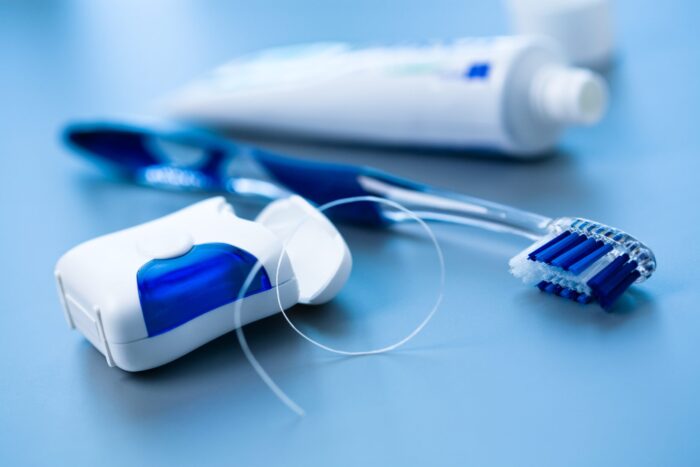There are many myths about dental health, especially when it comes to oral hygiene. Patient education is an important part of our practice, and we want our patients to learn the best ways to care for their smiles. Here we will debunk common oral health myths and review the best oral hygiene tips and treatments in our Arlington Heights, IL, dental office.

Debunking Oral Health Myths in Arlington Heights, IL
Learn why these oral health myths are false and what tips to follow for the healthiest smile possible:
Flossing Isn’t As Important As Brushing Your Teeth
Many people ignore dental floss and only brush their teeth. But flossing is an important step in an oral hygiene routine. Bleeding gums are a common sign of gingivitis that can occur when patients do not brush or, in particular, floss enough. Flossing removes food particles from between teeth and minimizes harmful bacteria in the mouth. Food debris attracts bacteria, which irritate the gum tissue and break down the tooth enamel. Floss before brushing your teeth every day for a cleaner, healthier smile.
Pregnant Women Should Avoid The Dentist
It is safe for pregnant women to visit the dentist for regular check-ups. In fact, we recommend routine dental cleanings for pregnant women because they can be more prone to problems like gingivitis or gum inflammation. Hormonal changes can lead to gum irritation, bleeding gums, and gum sensitivity, all signs of gingivitis.
During regular appointments, our hygienists use stainless steel tools to remove plaque and tartar from the teeth and gums. Plaque is a bacterial film that hardens over time to create tartar or calculus. It can be more difficult to remove tartar at home, which is why we recommend professional care for signs of gum inflammation and infection.
Brushing Your Teeth Harder Creates a Better Clean
If you brush your teeth too aggressively, you may think that you’re being efficient in cleaning your mouth. However, brushing too hard can lead to problems like bleeding gums, tooth sensitivity, gum recession, and enamel wear.
Instead, brush gently in circular motions. Use a soft-bristled toothbrush and non-abrasive toothpaste. If you notice signs like bleeding gums, even if you floss your teeth, ensure that you are brushing gently and contact our office if symptoms persist.
You Do Not Need to Treat Toothaches If They Stop
Did you have a toothache that suddenly stopped hurting? That doesn’t mean that the problem is gone; you still need to see a dentist for care. There are many problems that cause toothaches, including cavities and tooth decay, impacted teeth, and tooth damage.
You may also have a reason for your toothache that you can’t see visibly, which is why professional intervention is key. We can take dental x-rays to see within the teeth, jaw bone, and other structures in the mouth. Our team can find the cause of your pain and recommend a solution.
Do you have questions for Dr. Brent Engelberg and his team? Contact AH Smiles at (847) 230-9703. You may also make your next dental appointment on our website.
